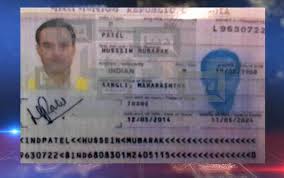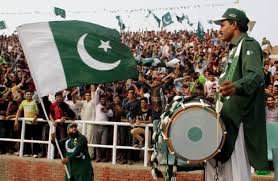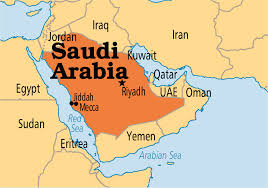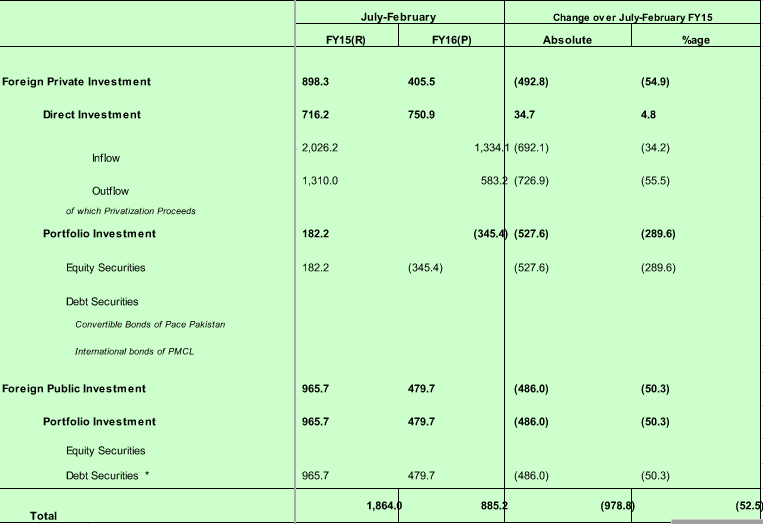
KWCCI forms committees to support biz-women


Harris Javed/ISLAMABAD: The National Bank of Pakistan has termed 2015 a ‘year of big turnaround’ in the growth of business and profit of the bank. The senior officials of the NBP observed this in the 67th Annual General Meeting of National Bank of Pakistan was held at Marriot Hotel Karachi on Wednesday March 30th, 2016. The meeting was well attended by the shareholders of the bank while Chairman Mr. Muneer Kamal and NBP President Syed Iqbal Ashraf also attended the meeting.
The shareholders were informed that the Bank achieved an exponential 51% growth in pre-tax profit for the year as it increased by Rs. 11.2 billion from Rs. 22.0 billion for the year 2014 to Rs. 33.2 billion for the year 2015.
This is a complete turnaround from year 2013; and is higher by 368% from 2013. The increase in profit before tax is mainly derived through 17% growth in core net interest/ mark-up income, and 15% growth in non interest/mark-up income. To mitigate the impact of the policy rate cut, the Bank managed its earning assets portfolio-mix in an optimum manner.
It was presented to the shareholders that the improved results were achieved through effective execution of strategies which encompass improving deposits mix for higher net interest income, portfolio optimisation and re-profiling, cost controls, business automation and expansion in branch network. The bank also focused on recoveries against non-performing loans.
The Board of Directors in its meeting held on February 19, 2016, had proposed a final cash dividend of Rs. 7.50 per share (75%) for the year ended December 31, 2015. This translates into 92% dividend payout of the bank’s distributable profit for the year 2015 (after statutory reserve allocation) and is among the highest in the banking industry.
Higher dividend payout reflects bank’s strong capital position with continuous focus on increasing stakeholder value by capitalising on opportunities to drive strong performance for the organisation and even higher payouts to the shareholders in the years ahead. The shareholders approved dividend payout of 75% cash dividend (Rs. 7.50/- per share) as recommended by the Board of Directors of the bank.
end

LAHORE/SAN FRANCISCO: Social media giant Facebookhas apologised to users in many countries including India for wrongly sending texts asking if they were “affected” by the deadly Taliban bombing in Pakistan on Easter Sunday.
The targeted suicide attack on people, including Christians in a crowded Lahore park killed more than 70 people, nearly half of them children. Facebook‘s Safety Check system activates after a tragedy to help people let others know they are safe.
The social network blamed a “bug” for the warnings sent to people thousands of miles away from Pakistan. Responsibility for the attack on Sunday has been claimed by a Taliban splinter group called Jamaat-ul-Ahrar, reports TOI.
The Safety Check system is supposed to be a quick way for members of the social network to let friends and family know they are safe if they are caught up in or are close to a natural disaster or attack.
On this occasion, many were made anxious when they received a message because it simply asked “Are you affected by the explosion?” without giving information about how close that person was to any potential threat.
Reports said Facebook users in the US, India, UK, Hawaii and many other places wrongly received warnings. Many shared images of the messages on social networks.
Even in Pakistan, people sitting hundreds of miles away from Lahore, where the bomb blast killed about 72 people on Sunday, also received FB safety check messages. Sending safety check messages to people living far, far away from the place of disaster or tragedy, is irritating. Facebook must restrict this safety check system to city/location of mishap.


J. Choudhry/ISLAMABAD: Kulbhushan Yadav, Indian spy agency RAW’s officer nabbed by Pakistani security forces in Balochistan earlier in March has made stunning disclosure about his involvement in training of terrorists to be used for attacks on ports in Karachi, Gwadar and other areas.
Yadav confessed that he had been giving training to Baloch armed groups to attack Pakistani ports. He further disclosed that he had purchased boats at the Iranian port in Chabahar to hit Pakistani ports in a terrorist plot with the support of Baloch trained for this purpose.
The Indian Foreign Ministry had confirmed that the arrested man was an Indian Navy officer, but disowned him saying Yadav had taken early retirement. This is a routine that whenever a high-profile official working undercover as spy agent is arrested, he is disowned.
Yadav was shifted to Islamabad for interrogation after his arrested, during which he confessed that the activists of Baloch armed groups’ were shifted to Mumbai via boats for Naval fighting training.
The arrest of Yadav is being termed a breakthrough for Pakistani military in exposing RAW’s involvement in terrorism in Pakistan and its penetration in Balochistan and other areas of Pakistan.
Yadav, who was in Balochistan on Iranian passport, was under watch of security forces for the past few months and he was taken into custody when the Pakistani security officials found concrete evidence against this RAW agent.
Interesting to note is that Pakistani military disclosed arrest of Yadav on the occasion of Iranian President’s visit to Islamabad that, in other words, was a slap on the face of Iranian leadership for facilitating India in fanning terrorism and hatred in Pakistan.
After his arrest, Pakistan summoned Indian High Commissioner Gautam Bambawale to lodge a strong protest over India’s interference in Balochistan and Karachi.
Further interrogation of the arrested Indian intelligence operative Kulbhushan Yadav revealed he had been imparting Naval fighting training to Baloch separatists in an attempt to target Pakistani ports.
Yadav, who was arrested in Balochistan, is believed to be a member of Indian intelligence agency Research and Analysis Wing (RAW). His arrest is being a major breakthrough in discovering presence of RAW’s network in Pakistan and this Indian infamous spy agency’s involvement in terrorism in Pakistan.
The Indian Foreign Ministry earlier confirmed the arrested man was a former Indian Navy officer, but the Pakistani government claimed to have recovered travel documents and multiple fake identities of Yadav, establishing him as an Indian spy who entered into Balochistan through Iran — holding a valid Iranian visa.
Karachi and Gwadar ports were to be targeted in terrorist plots as the RAW agent is believed to be expert at Naval fighting techniques and he had trained a team of fighters comprising Balochs.
Yadav was also transporting ‘anti-state elements’ from Pakistan to New Delhi for training by RAW, he said.
Following recent revelations by the ‘Indian spy’, security has been tightened across Balochistan, especially at the shared borders with Iran and Afghanistan, and more arrests are expected, he said.
After his arrest, Pakistan summoned Indian High Commissioner Gautam Bambawale to lodge a strong protest over ‘India’s spying activities’ in Balochistan and Karachi.
The arrest of the RAW agent comes just days before a possible meeting between Prime Minister Nawaz Sharif and Indian counterpart Narendra Modi at the Nuclear Security Summit in Washington.
Indian media reports claim the foreign secretaries of both countries, whose meeting to restart the Comprehensive Bilateral Dialogue (CBD) in January was derailed by the Pathankot attack, are also due to meet in Washington.
At the beginning of March, Aziz had said that foreign-secretary levels talks would resume after the probe team’s visit. The Pathankot Joint Investigation Team left for New Delhi on Sunday (today/March 27) and is expected to investigate the attack over the next week.
Pakistan and India had agreed to resume peace talks under the newly-coined phrase of CBD during Swaraj’s visit to Islamabad for the Heart of Asia Conference last year.
The dialogue was to take on matters related to peace and security, Jammu and Kashmir, Siachen, Sir Creek, Wullar Barrage, Tulbul Navigation Project, economic and commercial cooperation, counter-terrorism, narcotics control and humanitarian issues, people to people exchanges and religious tourism.
Harris Javed/ISLAMABAD: The International Monetary Fund has approved the disbursement of another $502 million to Pakistan after the completion of the tenth review of Pakistan’s economic performance under a three-year program supported by an Extended Fund Facility (EFF) arrangement.
In completing the review, the Executive Board also approved the authorities’ request for modification of the end-March 2016 performance criterion on the State Bank of Pakistan’s stock of net foreign currency swaps/forward position. The Executive Board’s decision enables the immediate disbursement of an amount equivalent to SDR 360 million (about US$502.6 million), bringing total disbursements to SDR 3.96 billion (US$5.53 billion). Ministry of Finance said Pakistan has received new tranche of the IMF loan on Friday.
On September 4, 2013, the Executive Board approved the 36-month extended arrangement under the EFF in the amount of SDR 4.393 billion (US$6.64 billion at the time of approval of the arrangement) or 216 percent of Pakistan’s current quota at the IMF.
Following the Executive Board’s discussion of Pakistan, Mr. Mitsuhiro Furusawa, Deputy Managing Director and Acting Chair issued the following statement:
“Economic activity has continued to gradually gain strength, and short-term vulnerabilities have receded. Building on these gains, further progress, including in the area of structural reforms, is needed to generate strong and inclusive growth and make the economy more resilient and competitive.
“The authorities’ continued commitment to reach the program’s fiscal targets is welcome. Further widening the tax net and ensuring the fairness of the tax system, together with prudent management of budgetary spending and close coordination with the provinces, remain important to consolidate the gains in addressing Pakistan’s fiscal vulnerabilities while generating the necessary resources for higher priority spending in areas such as infrastructure, health, and education.
“The monetary policy stance remains appropriate. Falling oil prices have helped efforts to bolster foreign reserves. While the establishment of an independent monetary policy committee has been an important step in advancing central bank autonomy, addressing remaining recommendations of the 2013 Safeguards Assessment will be key to strengthen it further.
“Reinforcing financial sector resilience remains pertinent and efforts to enhance capital buffers of banks are encouraging. The recent amendments to the AML Act constitute a first step to widen the application of AML tools to the proceeds of tax crimes. Further efforts to strengthen the AML/CFT framework are welcome and will help strengthen financial stability and tax compliance.
“Amid recent setbacks to the agenda to restructure or privatize loss-making public sector enterprises, continued resolve to complete the planned reforms remains important to address fiscal risks and strengthen economic efficiency. The authorities’ focus on containing losses in affected companies is also welcome in this regard. Further improving the business climate, transparency, and governance should help generate high and more inclusive growth.”

India-Pakistan World T20 fixture moving to Kolkata’s historic Eden Gardens is the best thing to have happened since the high-voltage clash finally gets the stage it deserves. India and Pakistan have never met here for a T20, but have engaged in some memorable ODI and Test battles over the years. The numbers favour Pakistan when it comes to Eden, who have beaten their arch-rivals four times in ODIs having won and lost a game each in Tests, reports Times of India.
We look back at a few encounters between the two sides at the iconic venue.
Malik outdoes Srikkanth (2nd ODI: February 18, 1987)
In their first ODI meeting, Salim Malik’s splendid 72 off 35 balls silenced the 90,000 crowd who had reasons to rejoice after Kris Srikkanth’s 123 off 103 balls, along with a partnership of 145 for the fourth wicket with Mohammad Azharuddin set India a reasonable platform of 238. Reasonable because the rest of the Indian batsmen struggled to get going. Wasim Akram finished with 3/49 and then it was upto the batsmen to hunt down the score. Debutant Younis Ahmed (58), then 40, struck a century stand with Ramiz Raza (50), before Ravi Shastri’s four-wicket burst had them gasping for air at 161 for 5.
Out walked Malik with Pakistan needing at over 10 an over. A flurry of shots unfurled and with 11 fours and one six, Malik gave Pakistan a famous win. He was severely brutal on Maninder Singh, who finished with 1 for 70 from his ten. Pakistan went on to win the six-match series 5-1.
Result: Pakistan won by 2 wickets
Imran strangles India (15th ODI, Nehru Cup: October 28, 1989)
The MRF World Series for the Jawaharlal Nehru Cup was a six-nation tournament held in India to celebrate the centenary of Jawaharlal Nehru’s birthday. India and Pakistan were two of the four semifinalists and in the only meeting they had, Imran Khan proved to be the difference between the two sides.
India and Pakistan came into this match needing a win to qualify for the semi-final, and they both did. Ramiz Raza once again provided Pakistan a solid start, putting on 97 for the opening wicket, this time with wicketkeeper Aamer Malik. Pakistan’s heavy middle order comprising Javed Miandad, Salim Malik and Ijaz Ahmed threw away good starts, but thankfully for them, Imran didn’t. He dashed to 47 off 39 balls, 19 of which came off Kapil Dev in the final over of the innings and it gave Pakistan the highest total of the tournament. India started well with Srikkanth and Raman Lamba putting up 120 runs in 20 overs, but once they perished, the remaining batsmen could only conjure 68 runs.
However, India did qualify for the semi-final which they lost to West Indies before Pakistan beat them in the final to lift the trophy.
Result: Pakistan won by 77 runs.
Shoaib’s two in two and a controversial run-out (1st Test, Asian Championship: February 16-20, 1999)
Pakistan did not tour India following the political tension brewing between the two nations for almost 10 years. So when they arrived in the winter of 1998-99 season, it was labelled as the ‘Asian Test Championship’. Both India and Pakistan had respective match-winners in Sachin Tendulkar and Shoaib Akhtar, hence the contest between bat and ball was never going to be more pulsating.
Javagal Srinath ran through the Pakistan batting order in the first innings picking up 5/46, and had it not been due to Moin Khan’s testing innings of 70 off 207 balls, Pakistan could have well been staring down the barrel. India managed to take a slender 35-run lead in the second innings, the highlight of which being Shoaib Akhtar’s two wicket off two balls to send back Rahul Dravid and Tendulkar. Srinath was even more spectacular in the second innings finishing with 8/86 even though Saeed Anwar’s 188 was the ship that steered Pakistan towards an imperative 316.
Needing 279 to win, India began well with Sadagopan Ramesh and VVS Laxman putting up a century stand. But no assistance from the remaining batsmen meant that they crumbled to the pace-spin due of Shoaib and Saqlain Mushtaq, who shared seven wickets between them to limit India to 232 all out. However, controversy ran wild as Tendulkar was given run out after Shoaib, who was waiting close to the stumps to gather the return, collided with the batsman. Umpire Steve Bucknor referred it to the third umpire, KT Francis, who, after a long delay, gave him out. The run-out sparked an outrage in the crowd and the Kolkata police had to chase them out of the stadium.
Result: Pakistan won by 46 runs
Salman Butt, Pakistan’s unlikely hero (One-off ODI: November 13, 2004)
As if India playing Pakistan is not a big deal in itself, the fact that it was BCCI’s 75th anniversary made the occasion even more spectacular. India lost Tendulkar soon to a direct-hit after Sourav Ganguly elected to bat in front of his locals. From that stage, Virender Sehwag and Laxman took over with an 82-run alliance before Ganguly played a very uncharacteristic innings of 48. However, it was Yuvraj Singh’s 78 off 62 deliveries that took the skin off Pakistan bowlers in the dying stage of the innings and helped India put up a formidable 292 on the board.
Pakistan’s chase was anchored by a 20-year-old Salman Butt, who was playing just his sixth ODI. Butt’s strokeplay through the off side was impressive – he effortlessly drove the seamers through the covers – but composure he showed throughout was what stood out. He retired hurt due to cramps when on 68, but returned after Mohammad Yousuf’s dismissal 31 runs later. With Inzamam-ul-Haq (75) then taking charge, Butt morphed himself to play second fiddle and fittingly scored the winnings runs.
Result: Pakistan won by six wickets.
Dravid, Kumble get India off the mark (2nd Test: March 16-20, 2005)
India had to wait years for their first win over Pakistan at the Eden Gardens, and who better to lead the way than one of India’s biggest match-winners Anil Kumble and the ever-so-reliable Rahul Dravid. A century from India’s most prolific No.3 batsman and fifties from Sehwag and Tendulkar gave India a first innings total of 407, in reply to which Pakistan fell short by 14 runs, despite hundreds from Younis Khan and Mohammad Yousuf. In the second innings, Dravid, for the second time in his career, reached the three-figure mark twice in a Test. While he set up India’s victory, Kumble confirmed it taking ten wickets in the match, including seven for 63 in the second innings. Victory was secured by 195 runs and the hoodoo was broken. Dravid was named Man of the Match for his superlative effort.
Result: India won by 195 runs.
Jamshed ton defies India (2nd ODI: January 3, 2013)
Nasir Jamshed’s third consecutive century against India helped Pakistan seal the three-match series against India. Pakistan had already taken the first ODI at Kochi despite a fighting hundred from skipper MS Dhoni and India needed to win the second one at Kolkata to square the series. But a shoddy performance with first the ball – Pakistan raced to 141 at nearly six and over – and then the bat – India lost half their side before even reaching the 100-run mark – saw India suffer their first bilateral home series loss in three years.
ROME: Indians are less happy than their counterparts in Pakistan and Bangladesh, according to a report published by the Sustainable Development Solutions Network (SDSN), which is a global initiative for the United Nations.
India comes in at the 117th spot out of 158 countries in the 2015 World Happiness Report. The report takes into account GDP per capita, life expectancy, social support and freedom to make life choices as indicators of happiness. India’s rank dropped six notches from the 2013 report, when it was on the 111th spot.
Pakistan is ranked 81 and Bangladesh, 109. Places like Ukraine (111), Palestine (108) and Iraq (112) too come up higher than India on the index. Switzerland has been named the happiest country in the world. The other countries in the top five are Iceland, Denmark, Norway and Canada.
“Increasingly, happiness is considered a proper measure of social progress and goal of public policy,” the report said, adding the happiness index describes how measurements of well-being can be used effectively to assess the progress of nations.
It takes into account factors like GDP per capita, social support of having someone to count on in times of trouble, freedom to make life choices, healthy life expectancy, generosity and perceptions of corruption.
The US is ranked 15, followed by UK (21), Singapore (24), Saudi Arabia (35), Japan (46) and China (84).
Afghanistan and war-torn Syria joined eight sub-Saharan countries in Africa — Togo, Burundi, Benin, Rwanda, Burkina Faso, Ivory Coast, Guinea and Chad — as the 10 least happy of 158 countries.
GDP per capita, healthy years of life expectancy, social support (as measured by having someone to count on in times of trouble), trust (as measured by a perceived absence of corruption in government and business), perceived freedom to make life decisions, and generosity (as measured by recent donations).
Differences in social support, incomes and healthy life expectancy are the three most important factors. This time around, Denmark overtook Switzerland as the world’s happiest place.
The report, prepared by the Sustainable Development Solutions Network (SDSN) and the Earth Institute at Columbia University, urged nations regardless of wealth to tackle inequality and protect the environment.
It showed Syria, Afghanistan and eight sub-Saharan countries as the 10 least happy places on earth to live.
The top 10 this year were Denmark, Switzerland, Iceland, Norway, Finland, Canada, Netherlands, New Zealand, Australia, and Sweden. Denmark was in third place last year, behind Switzerland and Iceland.
The bottom 10 were Madagascar, Tanzania, Liberia, Guinea, Rwanda, Benin, Afghanistan, Togo, Syria and Burundi.
The United States came in at 13, the United Kingdom at 23, France at 32, and Italy at 50.
“There is a very strong message for my country, the United States, which is very rich, has gotten a lot richer over the last 50 years, but has gotten no happier,” said Professor Jeffrey Sachs, head of the SDSN and special advisor to U.N. Secretary General Ban Ki-moon.
“The message for the United States is clear. For a society that just chases money, we are chasing the wrong things. Our social fabric is deteriorating, social trust is deteriorating, faith in government is deteriorating,” he said.
“When countries single-mindedly pursue individual objectives, such as economic development to the neglect of social and environmental objectives, the results can be highly adverse for human wellbeing, even dangerous for survival,” it said.
“Many countries in recent years have achieved economic growth at the cost of sharply rising inequality, entrenched social exclusion, and grave damage to the natural environment.”
The first report was issued in 2012 to support a United Nations meeting on happiness and well-being. Five countries ─ Bhutan, Ecuador, Scotland, United Arab Emirates and Venezuela ─ now have appointed Ministers of Happiness charged with promoting it as a goal of public policy.
The 2016 survey showed that three countries in particular, Ireland, Iceland and Japan, were able to maintain their happiness levels despite external shocks such as the post-2007 economic crisis and the 2011 earthquake because of social support and solidarity.
Sachs pointed to Costa Rica, which came in 14th and ahead of many wealthier countries, as an example of a healthy, happy society although it is not an economic powerhouse.

RIYADH: According to a recent report of its key achievements over the past year, the Riyadh Passport Department reported recording 35,661 cases of “huroob” (expat workers failing to report for work) last year.
The department also deported 33,511 foreign workers for violating labor and residency laws, and made 2,952 administrative decisions punishing violators of the law.
Additionally, the Anti-Forgery Department at the expatriate division considered 3,466 cases of forgery. These were among the department’s greatest achievements in last year.
The annual report of the Riyadh Passport Department, which was published by a local newspaper, also explained that the department released 5,115 expats after investigating them in different cases.
The report said that the number of expats who left the Kingdom through King Khaled International Airport was 3.6 million, while about 2,584 of them were sent back from the airport due to their involvement in criminal cases. The number of arrivals through the same airport was 3.9 million expatriates, reports Arab News.
The report said that the number of Yemenis who corrected their status in Riyadh and the affiliated provinces was 93,966. Of them, 71,021 were in Riyadh, 7,024 in Karj, 5,610 in Wadi Aldawaser, 1,893 in Aldowadmi, 3,347 in Almujammah, 1,405 in Quieyiya, 1,024 in Shaqra, 1,652 in Darma and 990 in Zulfi.
The department also undertook about 7 million transactions in total, according to the report, including issuing renewed Saudi passports, printing residency cards, issuing new passports, along with single exit/re-entry visas, multiple exit/re-entry visas, permanent exit visas, transfer of services and recording people’s bio-fingerprints. A number of services were also extended to escorts, in addition to a range of other transactions.
The department listed the opening of the new reception lounge and passport issuance hall in Riyadh, the inauguration of a passport branch office in Malaz, the launching of the Passport Department at the Ministry of Interior and expanding the women’s department in Riyadh among its major achievements of the year.
The report said that the department issued new passports for approximately 100,000 citizens, of which women accounted for 51,000.
State Bank of Pakistan has reported 52% decline in the inflow of foreign investment during July 2015 to Feb 2016 period. Total inflow of FI amounted to US$885 million during this period as against US$1.864 billion in the corresponding period of last financial year. Here is data of foreign investment inflow. This 52% decline in foreign investment in seven months of the ongoing financial year seems alarming and it exposes govt’s claims of improvement in investment in Pakistan.
